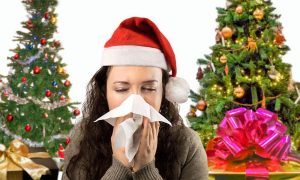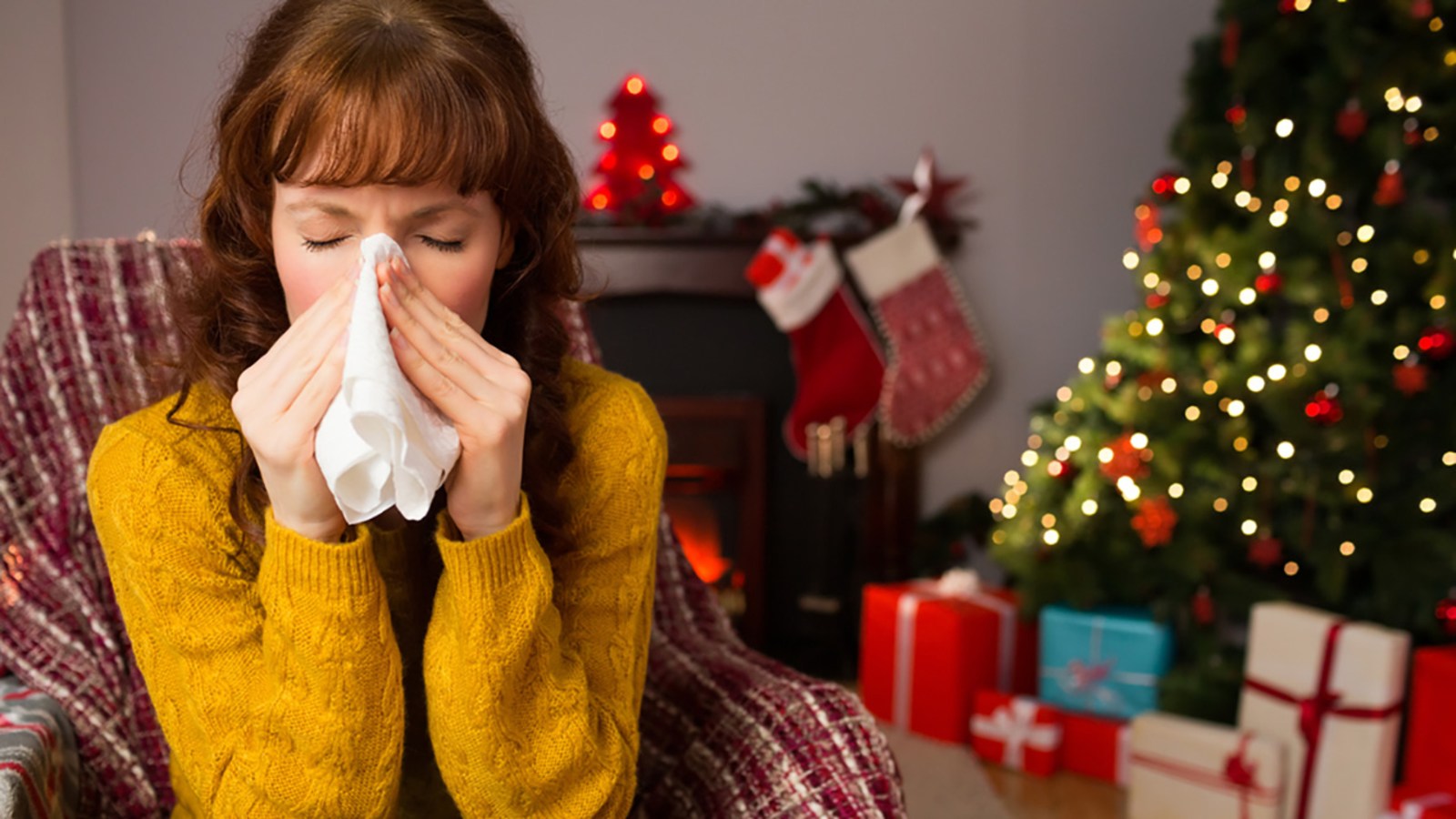Allergies at Christmas. How to have fun safely thisfestive season.
Christmas is coming and along with the excitement of preparing for Santa Claus, guests and parties, you need to be aware of the allergens around you as there is usually an increase in allergic reactions during this festive season.
Enjoy Christmas safely and avoid allergic reactions in a simple way by following these tips.
Food
If you or your child has a food allergy, plan ahead for any holiday events by checking recipes and ingredients for allergens. If you are visiting another house, call a few days in advance and talk about your allergies. Check the ingredients, share recipes or bring along an allergy-friendly dish for your child or yourself.
If you want to go out for a meal, before you order, inquire out about the allergens that may be icluded. It is always a good idea to call and talk to the restaurant manager or chef to ensure that they can accommodate you, and that they are confident that cross-contamination with oils and utensils that may have been used to cook an allergen can be avoided. At this time of year, there tend to be festive receipe changes. The food can be sprinkled with nuts or other allergens to make it look more festive.
Drinks
Festive drinks can also cause allergy issues and anaphylaxis. Christmas is a time when people experiment and tend to enrich drinks with spices or flavoured drinks. If you deviate from your usual routine during Christmas, it is important to consider allergens such as
- Sulphates in wine
- Almonds (Probably in some gin or other drinks)
- Dairy in cream liqueur, White Russians or Pina Coladas
- Egg white – Whisky Sour or other white foam cocktails may contain raw egg white
- Gluten in beer and spirits
Christmas trees

Mould and pollen on real Christmas trees can cause problems for people with allergies. Ask a familiar person to give your tree a good shake and let it dry before you bring it home. The same applies to artificial Christmas trees and allergies from dust mites and fungi. Plastic trees want equal attention from people with latex allergies.
Decorative – Ornaments
When you want to take Christmas decorations and ornaments out of storage, your dust allergies can be triggered by dust, causing problems for people who are sensitive to mites, dust, mould etc. Wipe the decorations with a damp cloth and store them in airtight plastic containers when the holiday season is over to avoid dust build-up.
Balloons, Christmas Floral Arrangements & latex allergies
With latex allergies be careful around florarl arrangements, as these popular Christmas plants are a member of the rubber tree family. Balloons, condoms, eyelash glue, latex gloves, elastics, rubber bands and other natural rubber products can also cause problems for people with latex allergies. Holiday balloons can be a problem, so try to tell your friends and colleagues to opt for latex-free balloons. Some people with latex allergies may also react to certain foods with similar proteins to latex, such as bananas, avocados, chestnuts and kiwis. If you are dining out, call ahead to make sure they don’t use latex gloves when preparing food and if you are predisposed to react to any food, let the restaurant know in advance. Contact hairdressers, dentists or other healthcare providers to make sure they do not use latex gloves.
School, Children’s events & Festive Fun
It is always good to discuss your children’s allergies with teachers early in the holiday season to ensure that any planned activities are safe and that your child doesn’t feel left out of the holiday fun.
Avoid placing food restriction on children. Talk to your classroom teacher or educator about how to safely include your child in Christmas activities that involve food. Ask for a reminder to be sent to parents via the school newsletter or messaging system that there is a child with allergies in the group so that any sent treats are safe. Provide the nursery or kindergarten with safe treats or a list of safe treats for special occasions and remind everyone to check the ingredients every time, as ingredients can change.
In addition, you should be aware of potential allergy triggers for soaps, face paints, balloons (latex), arts and crafts materials such as egg cartons or bird/animal feed.
If you travel at Christmas
Contact your airline in advance and let them know about your allergies. For nut allergies ask if they will make a statement restricting the sale of nut products on the flight and ask passengers not to open nut products purchased on board. Some airlines will of course do this if you have informed them in advance that you may have a severe allergy to peanuts or nuts in general or some other food.
Kisses, wishes and hugs
If you have food allergies, you may have an allergic reaction immediately after kissing someone who has eaten the food or taken oral medications to which you are allergic. Allergists recommend that the non-allergic partner brush their teeth, rinse their mouth and avoid the allergenic food for 16 to 24 hours before kissing a person who is highly allergic to that food.
Social Events
If you’re going out for a night on the town over the Christmas period, make sure you have automatic adrenaline injections with you at all times in case you are highly sensitised. Tell everyone about your automatic adrenaline injectors and show people how to use them.
You should also make sure you have medical jewellery or bracelets to let others know about your allergy. If you get separated from your friends, it is important that people around you know what is happening if you have an allergic reaction.
If you are carrying auto-adrenaline injections , you should check that they have not expired.
Keep them at room temperature and make sure you always carry two with you along with an antihistamine medicine. They can only help you if you have them on you at the time.
